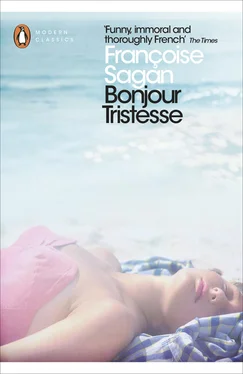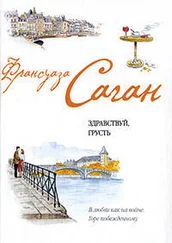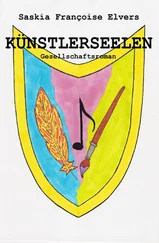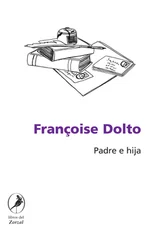He was speaking with closed eyes.
‘I’ll get home and I’ll say, “Oh, those Belgians!” and I’ll stretch. She’ll turn over and say: “There are some liver salts in the bathroom,” and she’ll go back to sleep. That’s all.’
‘Of course,’ I said. ‘And tomorrow you’ll have to give a brief, weary account of the cabarets, and Belgian morals, and …’
‘Oh, just a list … I don’t like lying and, well, even more, I don’t have time to lie.’
‘What do you have time for?’ I said.
‘Nothing. I have neither time nor strength nor inclination. If I had been capable of anything whatsoever, I would have loved you.’
‘What would that have changed?’
‘Nothing, it would have changed nothing for us. At least, I don’t think so. I would simply have been unhappy because of you, whereas now I’m quite content.’
I wondered if this was an admonishment for what I had said earlier, but he placed his hand on my head as if performing a solemn act:
‘I can say anything to you. I really like that. I couldn’t say to Françoise that I don’t really love her or that there is no marvellous, honest basis to our relationship. The basis of everything is my fatigue and boredom. That’s a solid basis, mind you, a superb one. You can build fine, lasting unions on such things: loneliness, boredom. Those things at least don’t change.’
I raised my head from his shoulder:
‘That’s …’
Filled with an energetic surge of protest, I was going to add ‘rubbish’, but I kept quiet.
‘It’s what? So now and then your youthfulness asserts itself, does it?’
He began to laugh, affectionately.
‘My poor pussycat, you are so young and defenceless. Yet, fortunately, so disarming. That reassures me.’
He took me back to the residence. I was to have lunch next day with Françoise and him and a friend of theirs. I kissed him goodbye through the car window. His features were drawn and he looked old, which I found rather distressing, and for a moment it made me love him more.
Four
I woke up the next day full of energy. Lack of sleep always agreed with me. I got up, went over to the window, breathed in the air of Paris and lit a cigarette without really wanting one. Then I went back to bed, though not without first having looked at myself in the mirror and noting that I had dark rings under my eyes and an interesting expression. Anyway, I was looking decent enough. I decided to ask the landlady if she would turn the heating on in the rooms the following day, for, really, it was getting beyond a joke.
‘It’s freezing cold here,’ I said out loud, and my voice sounded hoarse and funny.
‘My dear Dominique,’ I added, ‘you are passionately in love. What you must do is treat it, by going for walks, by doing some serious reading, or you could use young men to treat it, or perhaps some light work. That would do it.’
I couldn’t help feeling quite warm towards myself. I did, after all, have a sense of humour, and a damn good one at that! I felt fine. Wasn’t I just made for passion? What’s more, I was going to lunch with my heart’s desire. So I set off for Françoise and Luc’s with this somewhat fragile sense of detachment fortifying me on my pilgrimage, a sense of detachment which I owed to my physical euphoria, whose causes I knew only too well. I jumped on the bus just as it was moving off and the bus conductor, on the pretext of helping me, took the opportunity to put his arm round my waist. I showed him my ticket and we smiled conspiratorially at each other, he a ladies’ man and myself a woman who was used to ladies’ men. I stayed on the platform, leaning against the rail, as the bus jolted along, crunching over the cobblestones. With lack of sleep creating a tautness between my jaw and my solar plexus, I was feeling really great.
At Françoise’s, their friend, the one I didn’t know, had already arrived, quite a fat, red-faced, cold man. Luc wasn’t there because, as Françoise explained, he had spent the night with Belgian clients and hadn’t got up till ten. Those Belgians were a real bore with their wanting to go to Montmartre. I noticed the fat man looking at me and I felt myself blush.
Luc came in, looking tired.
‘Why, hello, Pierre,’ he said. ‘How are you?’
‘Weren’t you expecting me?’
There was something aggressive about him. Perhaps it was simply due to the fact that Luc had been surprised, not by my presence, but by his.
‘Yes, I was, old chap, I was,’ said Luc with a weary little smile. ‘Is there nothing to drink round here? What’s that delectable-looking yellow stuff in your glass, Dominique?’
‘It’s a pale whisky,’ I replied. ‘Don’t you even recognize it any more?’
‘No, I don’t,’ he said, and he sat down on an armchair as you would sit down in a railway station, on the edge of the seat. Then he glanced round at us again, the way you would glance at people in a station – in an absent-minded, indifferent way. He had a childish, obstinate look about him. Françoise began to laugh.
‘My poor Luc, you look almost as rough as Dominique does. And incidentally, my dear child, I’m going to call a halt to all this. I’m going to tell Bertrand that he …’
She told us what she would say to Bertrand. I had not looked at Luc. There had never been any conspiracy between us as far as Françoise was concerned, thank goodness. It was even quite funny. We spoke of her to each other as if we had been talking about a very dear child who was going to cause us a few headaches.
‘That kind of fun and games does nobody any favours,’ said the aforementioned Pierre. All of a sudden I realized that, probably because of Cannes, he knew about us. That explained his look of contempt at the beginning, and his coldness and those semi-allusions. I suddenly remembered that we had run into him there and that Luc had told me that he, Pierre, was a little in love with Françoise. He must have been shocked and was perhaps inclined to gossip, along the same lines as Catherine: not wanting to conceal anything from friends, wanting to be helpful, not wanting to take advantage, and so on. And if Françoise were to find out, and then if she were to look on me with contempt or anger or any of those feelings that were so foreign to her and, it seemed to me, so ill-deserved by me, what would I do?
‘Let’s go for lunch,’ said Françoise. ‘I’m ravenous.’
We set off on foot for a nearby restaurant. Françoise took my arm and the two men followed.
‘It’s very mild,’ she said. ‘I adore autumn.’
And I don’t know why, but those words triggered in me the memory of the hotel room in Cannes and Luc at the window saying: ‘What you need is a bath and a good glass of Scotch and then everything will be all right.’ That had been on the first day and I hadn’t been very happy. There was a fortnight to come, a whole fortnight with Luc, day and night. And that was what I most desired just now and it would probably never happen again. If only I had known … But if I had known, it would have made no difference. There was a sentence from Proust about it: ‘It is very rare for happiness to alight exactly on the desire that had summoned it.’ 30Last night that rare thing had occurred: when I had come close to Luc’s face, even though it was something I had desired all week, the coincidence of desire and fulfilment had made me feel almost sick. Perhaps it was due simply to the sudden disappearance of the void that my life generally consisted of, a void which was to do with the feeling that my life and I were not in sync. Whereas, on the contrary, at that moment I had had the impression that I was at last in sync with my life and that it was a culmination for me.
‘Françoise,’ Pierre called out from behind us.
Читать дальше












